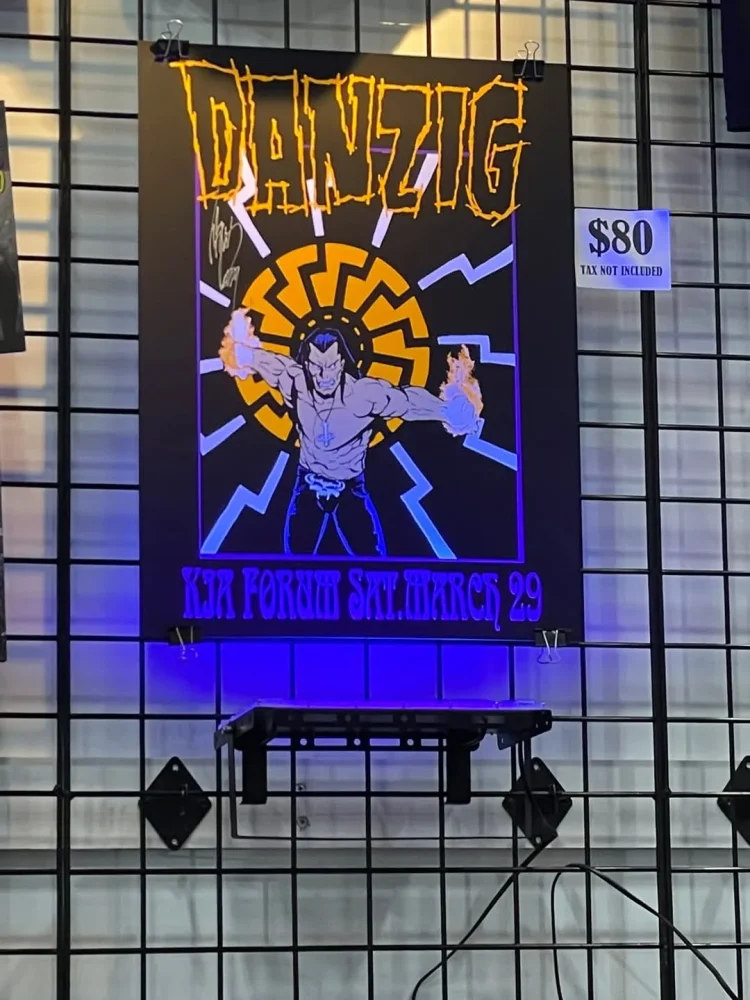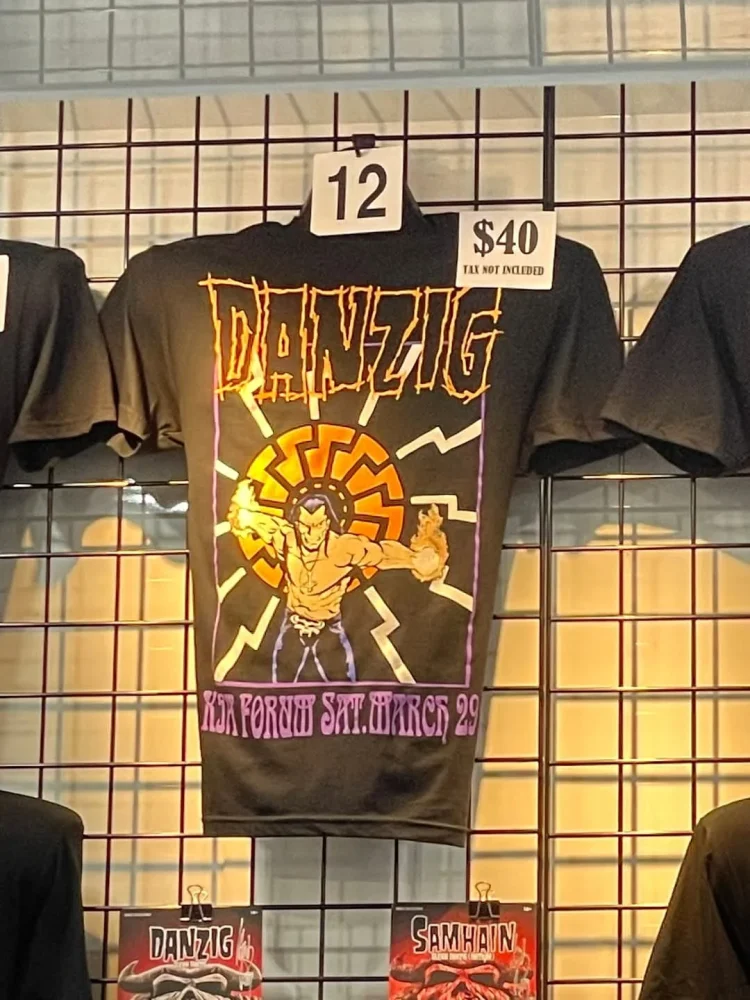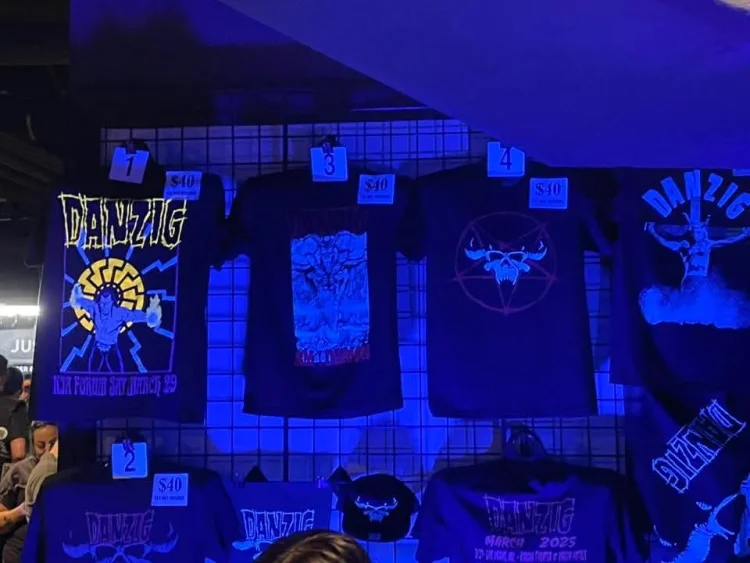American heavy metal Danzig are currently doing a run of shows up the West Coast of America. But what’s turning heads isn’t the setlist, it’s actually the merch.
As first reported in Metal Injection, some fans have spotted designs featuring the Sonnenrad, also known as the Black Sun, on shirts and posters being sold at the gigs. The Sonnenrad is a symbol long associated with Nazi Germany and now widely used by white supremacist and far-right groups.
To be clear: while the Sonnenrad predates the Third Reich, that doesn’t change what it represents today. The Anti-Defamation League describes it as “one of a number of ancient European symbols appropriated by the Nazis in their attempt to invent an idealised ‘Aryan/Norse’ heritage.” That association hasn’t gone away—it’s only become more prominent in extremist circles. So yeah, context does matter here.
Whether Glann Danzig himself approved the design or even knows what it means is still unknown. He hasn’t yet addressed the issue publicly. But that hasn’t stopped white nationalist forums from celebrating the merch and embracing Danzig as a fellow traveller. If this was unintentional, the damage is already in motion. If it wasn’t, that’s an entirely different problem.



Either way, staying silent isn’t helping.
This isn’t just about a bad design choice—it’s about what happens when artists flirt with or ignore the darker corners of iconography. The excuse that something’s “just an old symbol” doesn’t fly when hate groups have already claimed it, weaponised it, and are now applauding its use on a major artist’s tour merch.
Danzig’s had a long career pushing buttons, but this is a different kind of controversy. Intentional or not, this move has real-world consequences, and fans deserve a straight answer.
Until that happens, one thing’s clear: selling merch with hate-linked imagery—especially at a time when extremist rhetoric is gaining ground—doesn’t just look bad. It is bad.









